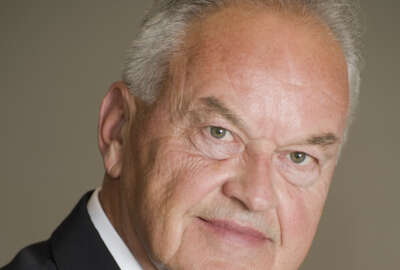
Long-term commuters in voting squeeze
The election is just around the corner and Senior Correspondent Mike Causey says by now most federal workers know who NOT to vote for.
By now, no doubt, a partisan/civic-minded/nutcase (choose one) friend, relative or coworker has likely warned you of the job-related trouble(s) facing career federal workers if we/you elect the ‘wrong’ candidate. So, just who is Mr. or Ms. Wrong?
The knock against a President Trump is that he would gut the government and make it easier to fire civil servants as part of his plan to drain what he calls the Washington” swamp.”
The argument against President Clinton is that she, like other Democrats routinely endorsed by federal unions, would take feds for granted and act, or not, accordingly.
Whatever you believe and whatever you think of our choices, not having time to vote is not a good excuse not to vote.
At least for most civil servants. But there are some road warriors with hair-graying commutes who might find the Tuesday after next a bit of a squeeze.
Polls in the D.C. metro area leave most workers with plenty of time to vote before or after work. The D.C. metro area has the largest concentration of federal workers outside of California. Polls in the District of Columbia and Maryland are open from 7 a.m. to 8 p.m. In Virginia, you can vote from 6 a.m. to 7 p.m. That should cover the rule that gives feds three hours time before, or after work, to cast their ballots. But…
Tens of thousands of feds who work at the Pentagon, Justice Department, IRS and other departments and agencies based here don’t live anywhere near here. Many work in the metro area but commute from West Virginia, southside Virginia, Pennsylvania and Maryland’s Eastern Shore. I heard from folks who work here, but live in North Carolina. A friend has a 200-mile daily round trip commute from central Pennsylvania. Then there was the van pool from Dover, Delaware., to downtown D.C.
While there is no such thing as a bloc federal vote beyond the beltway, current and retired government workers make up huge chunks of the electorate in important places, like Texas, Ohio, Indiana, Pennsylvania, Virginia, North Carolina, Utah, Georgia ,Colorado and other places that may be up for grabs. There is no evidence that feds vote as a bloc. But if they did they could almost certainly tilt their state in close race.
For long-distance commuters, the government gives agencies the authority to grant employees extra time off to vote. When in doubt, consult the most recent Office of Personnel Management (Oct. 18) directive on the matter.
So while it will be a time-consuming chore for some people, there is no excuse not to vote because you have work.
But what if it’s not that time isn’t on your side? What if you can’t bring yourself to vote for either of the two major party candidates, or third and fourth parties who are on the ballot? In that case, of course, you are on your own. And you may not be alone either!
Got a crazy, long-distance commute? From where to where? How long are you on the road? How do you make it work? Are you the long-distance champ? We’d love to here from your road warriors and write you up either using your real name or a nom de guerre. Send them to me at mcausey@federalnewsradio.com.
Nearly Useless Factoid
By Jory Heckman
Psychopaths tend to have a poor sense of smell.
Source: Live Science
Copyright © 2025 Federal News Network. All rights reserved. This website is not intended for users located within the European Economic Area.
Mike Causey is senior correspondent for Federal News Network and writes his daily Federal Report column on federal employees’ pay, benefits and retirement.
Follow @mcauseyWFED



